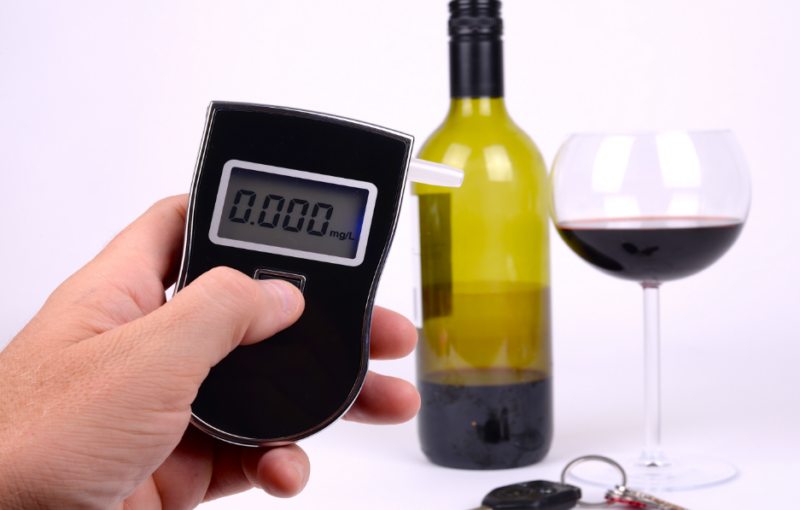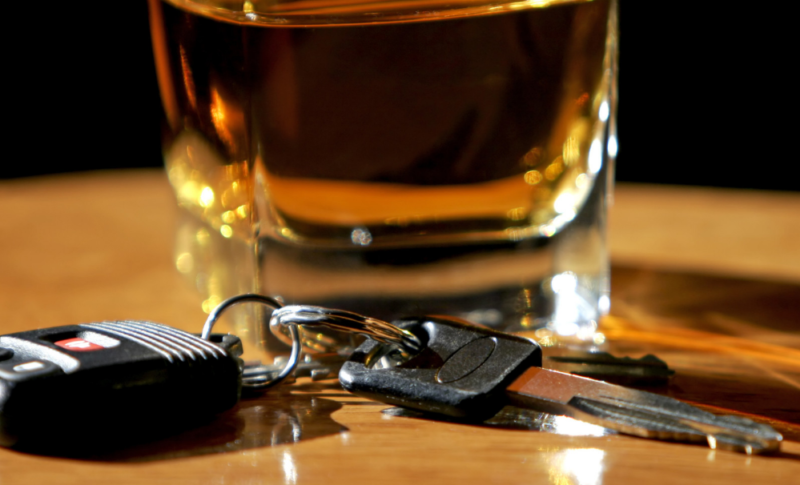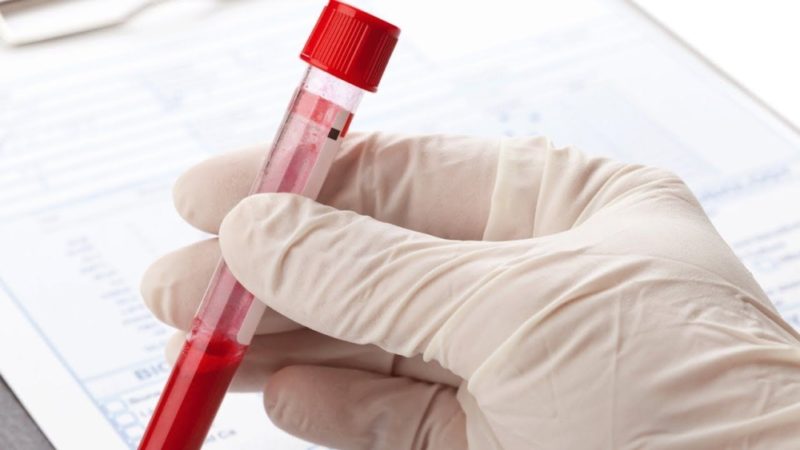There are situations in life when after taking alcohol containing drinks you need to drive a car or perform other actions that require a high concentration of attention and an uncomplicated perception of reality. In order not to jeopardize your own health, you need to understand how long alcohol holds in the blood. The catch is that it is impossible to unequivocally answer such a question.
Material Content:
How long does alcohol stay in the blood
It is impossible to determine the exact time for eliminating alcohol from the body. The period varies from an hour to a day and depends on the volume and strength of the drunk alcohol, a person’s metabolism, his health and other factors.
So, from 200 grams of cognac, the level of alcohol does not decrease in the blood much longer than from the same volume of dry wine. But there is no difference in what form the drink was taken - vodka diluted with non-carbonated liquids has the same effect as “pure”.
The rate of alcohol removal depends on the type and amount of alcoholic drink drunk, as well as on the weight of the person. With a body weight of less than 60 kg, 100 g of brandy or vodka will “last” in the bloodstream for 5 to 7 hours, 300 g for 18 to 21 hours, 500 g for about 30.
If the body weight is 80 - 100 kg, then the processing of 100 g of brandy or vodka will require at least 4 hours, 300 g - 12 hours, 500 g - about 22.
When can I drive?
You can drive behind the wheel after splitting alcohol to an acceptable level. The degree of intoxication is defined in ppm, indicated by the -0/00 icon, which shows one tenth of a percent.
Some drivers presumptuously drive, having drunk a small dose of alcohol, and are surprised to receive a fine. The fact is that ethanol vapor is kept in the lungs for a long time. Moreover, the ladies withdrawal period takes longer.
In men, alcoholic vapors from 0.5 liter of beer are present for at least 4 hours, and in women about 8 hours.
For example:
- 4% beer is kept in the blood for 1 to 4 hours;
- wine - 3 - 8 hours;
- liquor - 5 - 18 hours;
- cognac, vodka - 8 - 30 hours.
When you can drive after alcohol, many motorists want to know, but to this question, as we have already found out, there is no single answer. After taking a bottle of vodka on your chest, you can drive a car only after 19 hours, after drinking 6 bottles of beer - after 16, and after using 2 bottles of wine, it is better to refrain from driving a car for at least 17 hours.
How to speed up the elimination of alcohol from the body
In the process of elimination, the main roles are played by the liver, kidneys, lungs.
Alcohol from the blood is eliminated faster if the following actions are taken:
- Take a walk in the fresh air. This will help the lungs clear off ethanol vapor.
- Take a contrast shower to increase blood flow.
- Drink liquids in large quantities, except for sweet soda.
- Vitamin C will help speed up the recovery process.
- Move more.
- Take diuretics: Furosemide, Trifax and sorbents: Smectu, activated charcoal.
Intoxication Test Methods
In a car accident, it becomes necessary to determine the level of alcohol in the body of the offender.
To establish the fact of intoxication, there are several ways:
- Visual inspection. The driver noticeably impaired coordination of movements, speaks incoherently and illogically, there is a slow reaction, you can smell the fume.
- Breathalyzer. With its help, the concentration of alcohol in the exhale is detected. Testing is carried out with a disposable mouthpiece that has not yet been used and has not been processed with alcohol-containing substances. Otherwise, the readings are distorted. Before use, the device should show 0. The permitted dose is 0.16 ppm.
- Blood test (performed in the laboratory). It determines the level of ethanol at the time of collection. The valid value is 0.336 ppm.
- Urinalysis (performed laboratory). Allowed 0.1 ppm. It is completely removed after 24 - 48 hours.
The level of alcohol in the urine depends on how often and for a long time the bladder emptied and how much fluid was drunk, except for alcohol. After the start of the decay of ethanol, acetaldehyde is actively synthesized, which is subsequently converted to acetic acid. Enzymes are involved in the synthesis, on which the conversion rate depends.
As ethyl alcohol is decomposed to acetaldehyde, intoxication passes into the stage of withdrawal syndrome, and in vernacular - a hangover. This condition ends after the conversion of acetaldehyde to acetic acid.
Driving while intoxicated is prohibited. The fine is 30,000 rubles and deprivation of rights up to 2 years.
Time for the complete release of alcohol from the blood
It is impossible to unequivocally answer this question. The duration of the output of drunk alcohol is individual for each person.
Its processing in the body occurs in several stages:
- Absorption begins as soon as alcohol is in the stomach. Occurs until its concentration in the blood reaches its maximum. The duration of the process can be 5 hours.
- Excretion lasts about 12 hours through exhaled air, feces and urine.
- Oxidation completes the processing process, occurs in the liver.
There are reasons that affect exit time:
- Studies have shown that alcohol is excreted longer in older people, faster in young people.
- Intoxication lasts longer if you had to drink on an empty stomach.
- The concentration is greater, the rate of withdrawal is less if you take alcoholic beverages quickly.
- Ethanol is faster if the metabolic process is not disturbed and physical activity is high.
- Alcohol is poorly excreted in pathologies of internal organs, stress, depression, fatigue.
- In representatives of the weaker sex, it breaks down more slowly, and internal organs are affected by toxins much faster.
- The rate of complete withdrawal depends on the weight of the person.
- The more years drunkenness counts, the more "internal organs" are worn out, in the tissues of which alcohol breaks down, so the process for alcohol connoisseurs with experience lasts longer.
Alcohol in human blood should not exceed 0.336 ppm, and in exhaled air - 0.16.
Driving after drinking alcohol is dangerous. You can suffer yourself or hurt others. In order not to have to calculate losses, it is better not to take risks. This also applies to people suffering from a hangover. After large celebrations, it is better to abandon driving for several days. The effect of a hangover on a person is sometimes stronger and more dangerous than intoxication itself.
















